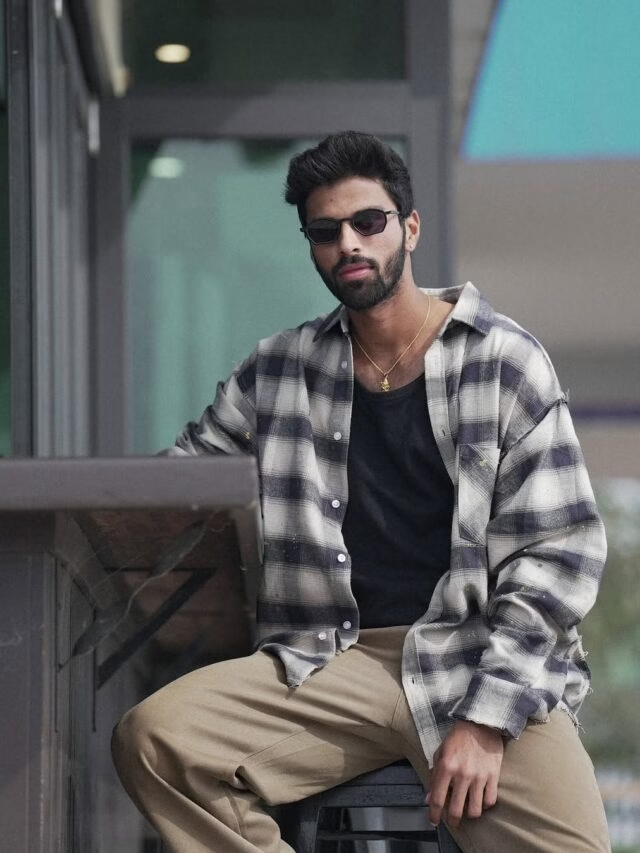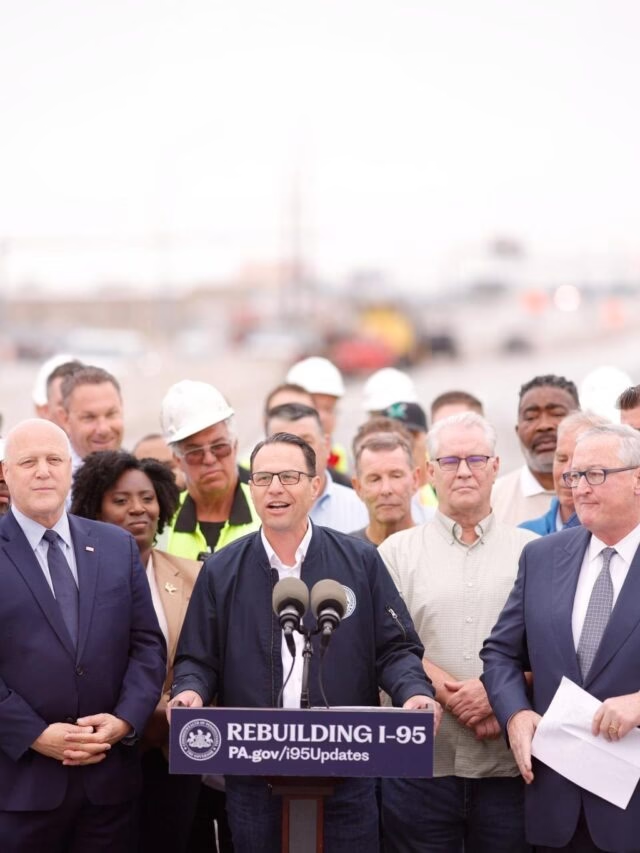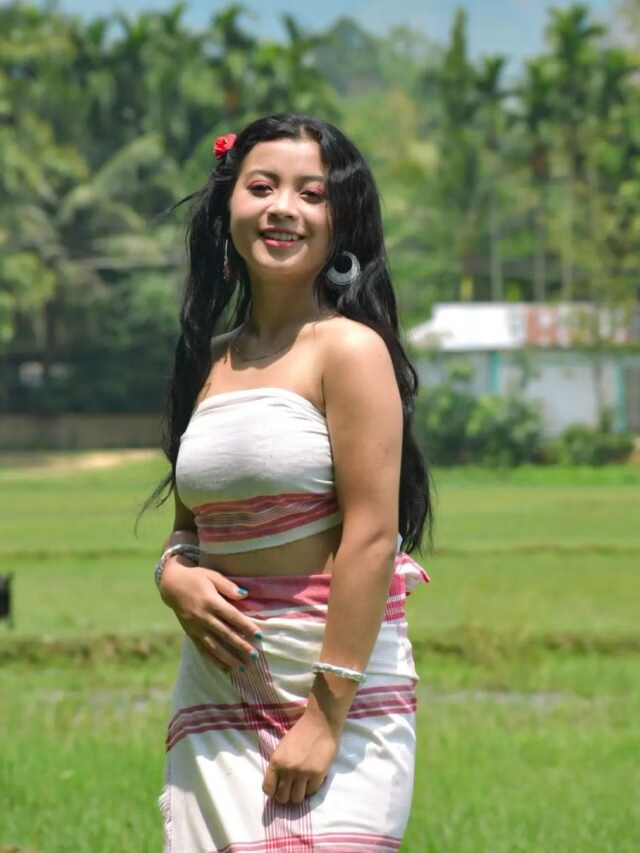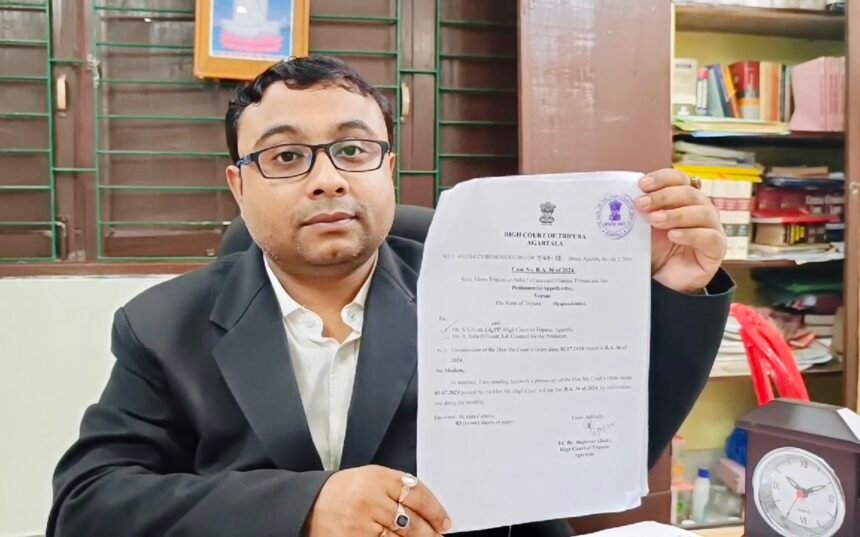Agartala Correspondent 03-07-2024: With the recent enforcement of new criminal laws from July 1, the judicial landscape in India has seen significant changes. Among the notable developments is an innovative ruling by the Tripura High Court, delivered by Hon’ble Justice Arindam Lodh, which breaks new ground in the fight against drug abuse.
In a case registered under the NDPS Act (Birganj P.S. Case No. 10/24), two young men, Jibonjoy Tripura and Salenjoy Tripura, were arrested on charges of possessing and selling heroin on April 15, 2024. They applied for bail (B.A. 36 of 2024), and in a move reflecting the principles of the new laws, the High Court has taken a corrective approach rather than a purely punitive one.
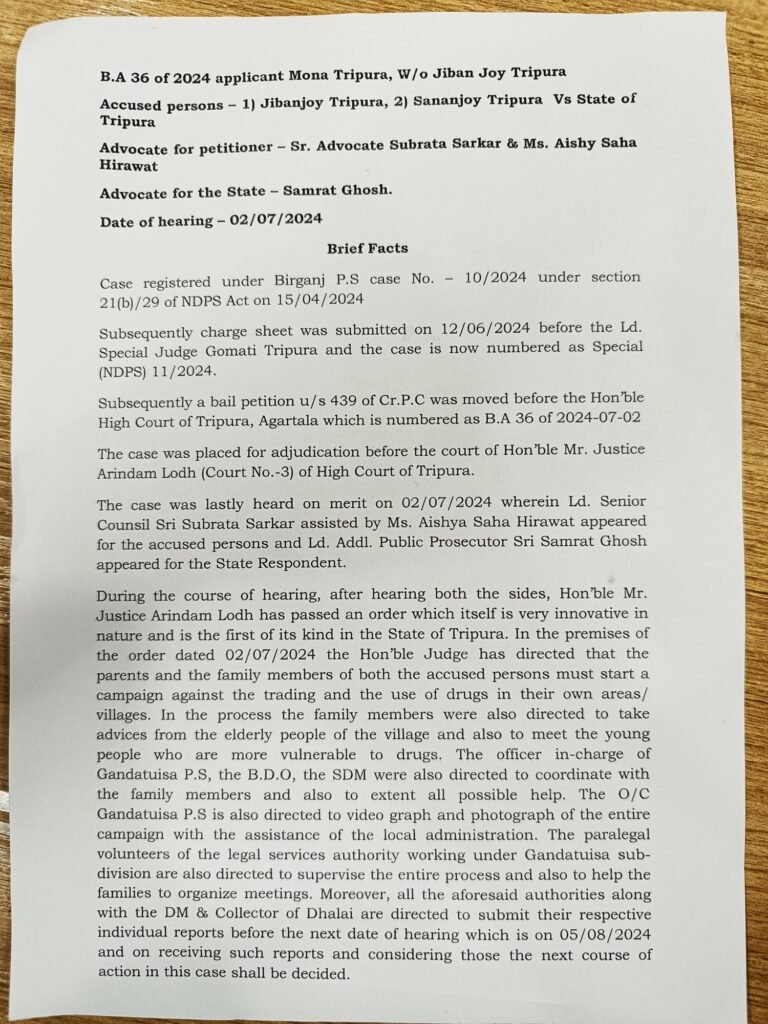
The Ruling:
On July 2, 2024, Justice Lodh ordered that the final hearing on the bail plea be deferred to August 4, 2024. In the interim, he directed the families of the accused to spearhead an anti-drug campaign across their community, including their neighborhood, village, and sub-division. The campaign aims to effectively communicate the dangers of drug abuse and foster a drug-free society.
Community Involvement:
The ruling mandates the families to engage with local youth and parents, raising awareness and building public opinion against drug trafficking. Justice Lodh emphasized that this community-driven initiative should include discussions and educational activities, ensuring that the anti-drug message resonates deeply within rural areas.
Official Support:
To facilitate this campaign, the court has instructed the Officer-in-Charge of Gandacherra Police Station, the Block Development Officer (BDO), the Sub-Divisional Magistrate (SDM), and Para-Legal Volunteers appointed by the Legal Services Authority to provide full support to the families. They are tasked with organizing the campaign, collecting feedback from the community, and reporting back to the court.
Additionally, the District Magistrate of Gandacherra district has been directed to submit a separate report to the court, documenting the campaign’s impact. All stakeholders are required to submit photos and videos of the campaign, along with detailed reports on the community’s reaction, by the next hearing date.
Legal Representation:
The accused were represented by prominent senior advocate Subrata Sarkar, assisted by junior lawyer Ayesha Saha Hirabat. The state’s case was presented by Additional Public Prosecutor Samrat Ghosh.
Public Reaction:
This landmark ruling has sparked significant interest and discussion among the public. Many see it as a progressive step that could set a precedent for integrating corrective measures with traditional punitive justice in the legal system. It underscores a shift towards rehabilitative justice, aiming not just to punish but to reform and educate, fostering a proactive stance against drug abuse.
Conclusion:
As the campaign unfolds, all eyes are on how this directive will be executed and its potential impact on both the accused and the community. This ruling represents a new dimension in the judiciary’s approach to drug-related offenses, blending justice with social responsibility.
AGULI STAFF DESK

